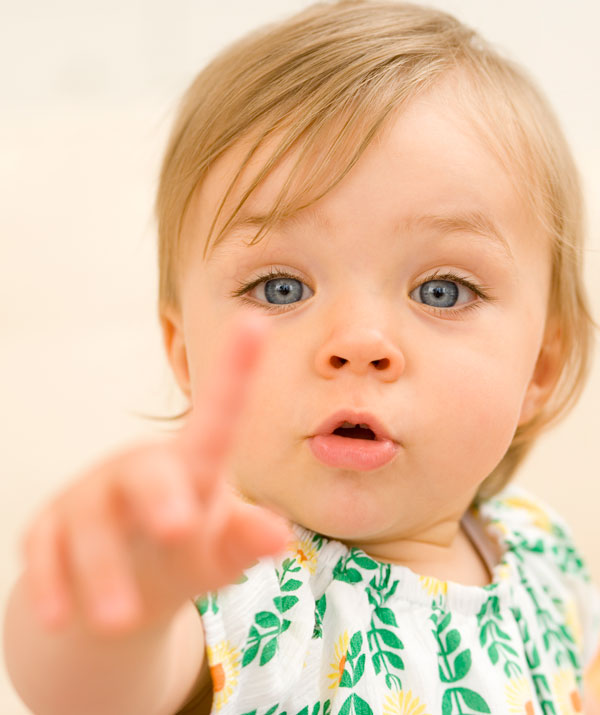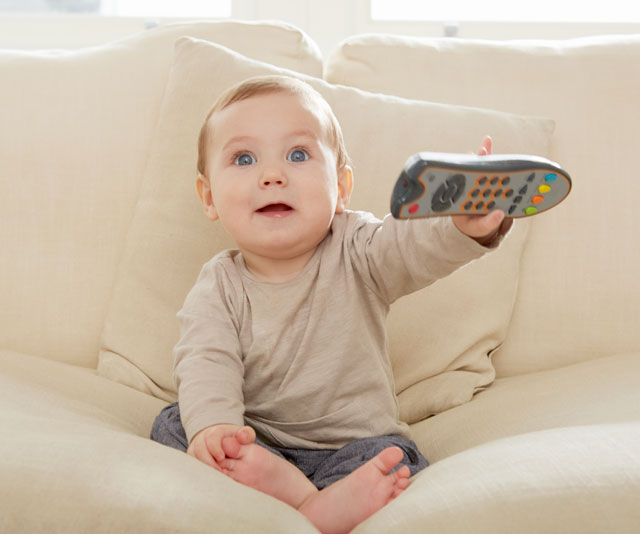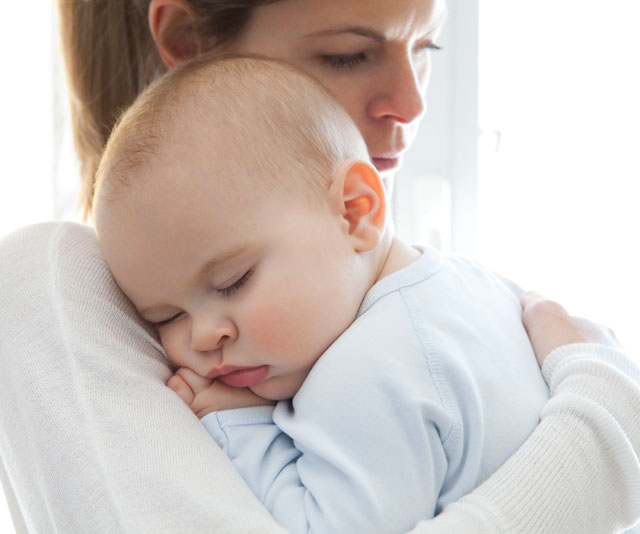Teething, sitting up, baby talk and cause-and-effect experiments
Teething
Visible signs of teething include excessive dribbling, chewing on their fingers, gumming furniture, flushed cheeks and a tender mouth. Offering bub a cooled teething ring to gnaw on can help relieve discomfort, as can rubbing teething gel onto gums. If they’re distressed as their teeth come through, give them the recommended dose of infant paracetamol.
Note that a fever or temperature above 38.5C, diarrhoea or earache are signs your baby is ill (and should be seen by a doctor), not symptoms of teething.
Baby teeth need to be cleaned regularly, as soon as the first one appears – on the lower jaw when they are around six to 10 months old. It’s vital to keep first teeth and gums in a healthy condition, as they help keep the jaw in good shape and ready for the second teeth. Teach your little one about caring for their teeth from an early age by implementing good habits and by setting a good example yourself.
Sitting up
At first your baby will be wobbly when you place her in a sitting position but by seven months, most babies will be sitting on their own for several minutes without toppling over. Babies need to learn balance to sit up but also what it feels like to sit up. Use cushions to support her or sit on the floor allow her to sit between your legs.

At seven-months-old, most bubs can sit on their own. (Image: Getty Images)
Baby talk
As well as understanding frequently repeated words, such as her own name, your baby may be starting to understand the content of speech. She might be copying the sounds you make, especially if they’re one syllable and start with a consonant formed with the lips, such as “bah” or “mah”.
First words are often only understood by immediate family. If your baby consistently uses the same sound with the same meaning, and you understand it, this is the start of speech.
Cause-and-effect
Does your little one love to drop food over the side of the high chair and throw toys out of her pram? Your child is exploring the concept of gravity: when babies drop something on purpose, they’re conducting a little cause-and-effect experiment.
As they get older, they’ll study intently what happens when different objects fall. For example, avocado sticks to the ground, while a spoon makes a clanging noise.

